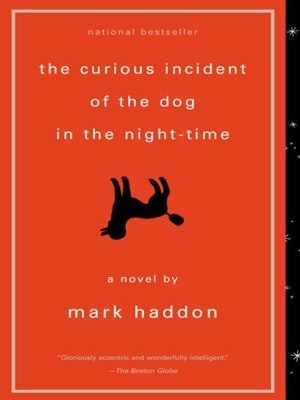The Curious Incident of the Dog in the Nighttime

Given Christopher's aversion to being touched, can he experience his parents' love for him, or can he only understand it as a fact, because they tell him they love him? Is there any evidence in the novel that he experiences a sense of attachment to other people?
What challenges does The Curious Incident present to the ways we usually think and talk about characters in novels? How does it force us to reexamine our normal ideas about love and desire, which are often the driving forces in fiction? Since Mark Haddon has chosen to make us see the world through Christopher's eyes, what does he help us discover about ourselves?
Christopher experiences the world quantitatively and logically. His teacher Mr. Jeavons tells him that he likes math because it's safe. But Christopher's explanation of the Monty Hall problem gives the reader more insight into why he likes math. Does Mr. Jeavons underestimate the complexity of Christopher's mind and his responses to intellectual stimulation? Does Siobhan understand Christopher better than Mr. Jeavons?
Which scenes are comical in this novel, and why are they funny? Are these same situations also sad, or exasperating?
Christopher's conversations with Siobhan, his teacher at school, are possibly his most meaningful communications with another person. What are these conversations like, and how do they compare with his conversations with his father and his mother?
One of the primary disadvantages of the autistic is that they can't project or intuit what other people might be feeling or thinking --- as illustrated in the scene where Christopher has to guess what his mother might think would be in the Smarties tube [pp. 115–16]. When does this deficit become most clear in the novel? Does Christopher seem to suffer from his mental and emotional isolation, or does he seem to enjoy it?
What is the effect of reading the letters Christopher's mother wrote to him? Was his mother justified in leaving? Does Christopher comprehend her apology and her attempt to explain herself [pp. 106–10]? Does he have strong feelings about the loss of his mother? Which of his parents is better suited to taking care of him?
Mark Haddon has said of The Curious Incident, "It's not just a book about disability. Obviously, on some level it is, but on another level . . . it's a book about books, about what you can do with words and what it means to communicate with someone in a book. Here's a character whom if you met him in real life you'd never, ever get inside his head. Yet something magical happens when you write a novel about him. You slip inside his head, and it seems like the most natural thing in the world" [http://www.powells.com/reader/interviews/ ]. Is a large part of the achievement of this novel precisely this --- that Haddon has created a door into a kind of mind his readers would not have access to in real life?
Christopher's journey to London underscores the difficulties he has being on his own, and the real disadvantages of his condition in terms of being in the world. What is most frightening, disturbing, or moving about this extended section of the novel [pp. 169–98]?
In his review of The Curious Incident, Jay McInerney suggests that at the novel's end "the gulf between Christopher and his parents, between Christopher and the rest of us, remains immense and mysterious. And that gulf is ultimately the source of this novel's haunting impact. Christopher Boone is an unsolved mystery" [The New York Times Book Review, 6/15/03, p. 5)]. Is this an accurate assessment? If so, why?
